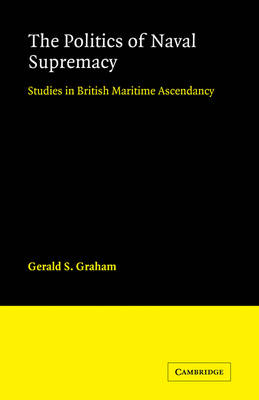The Wiles Lectures
1 total work
Professor G. S. Graham sets broadly and clearly in perspective the limiting factors which permitted British predominance at sea in the nineteenth century. He introduces the British fleet in its European, Atlantic and Indian Ocean contexts and examines the local as well as the general conditions for its superiority. Naval supremacy is seen as one expression of Britain's industrial and commercial lead, enabling trading routes to be secured, competitors and enemies confined, far-flung geographical entities manipulated. Sea power could not meet the sudden diplomatic crisis on a land-based frontier which might rapidly alter the litoral conditions under which a fleet operated, but, Dr Graham points out, this could scarcely happen around the Indian Ocean or the Pacific. Until the emergence of Japan, followed by the United States in this arena, these oceans offered ideal conditions for the exercise of sea power.
